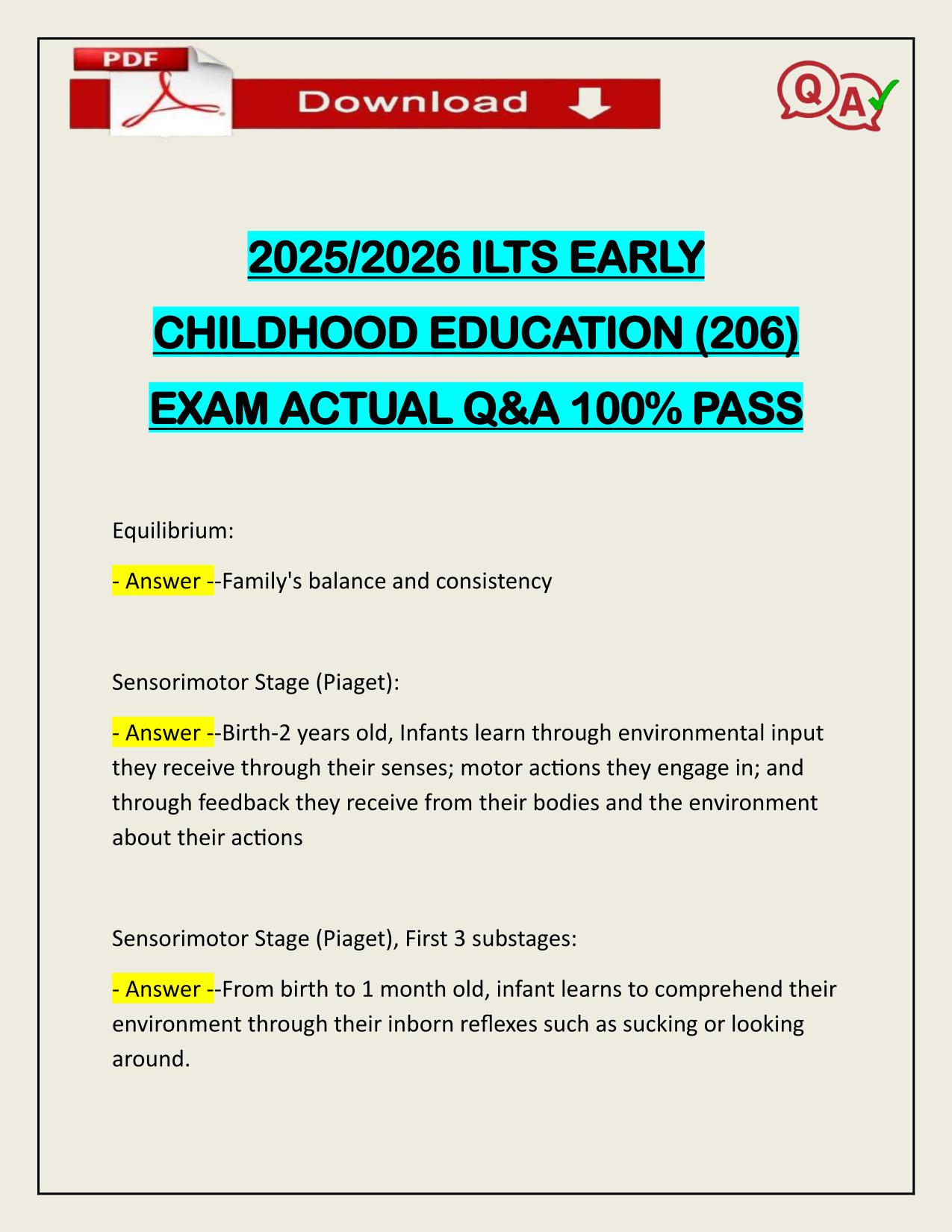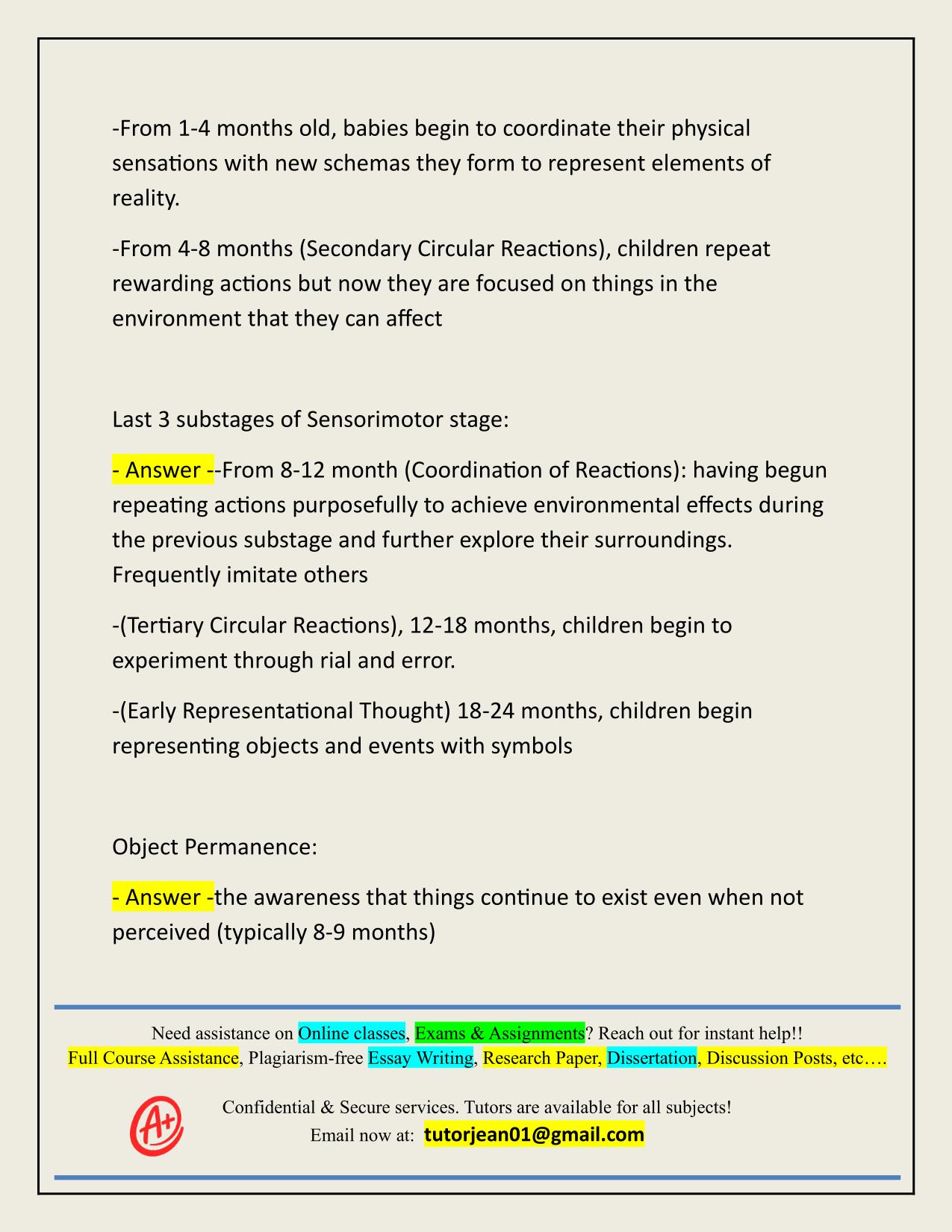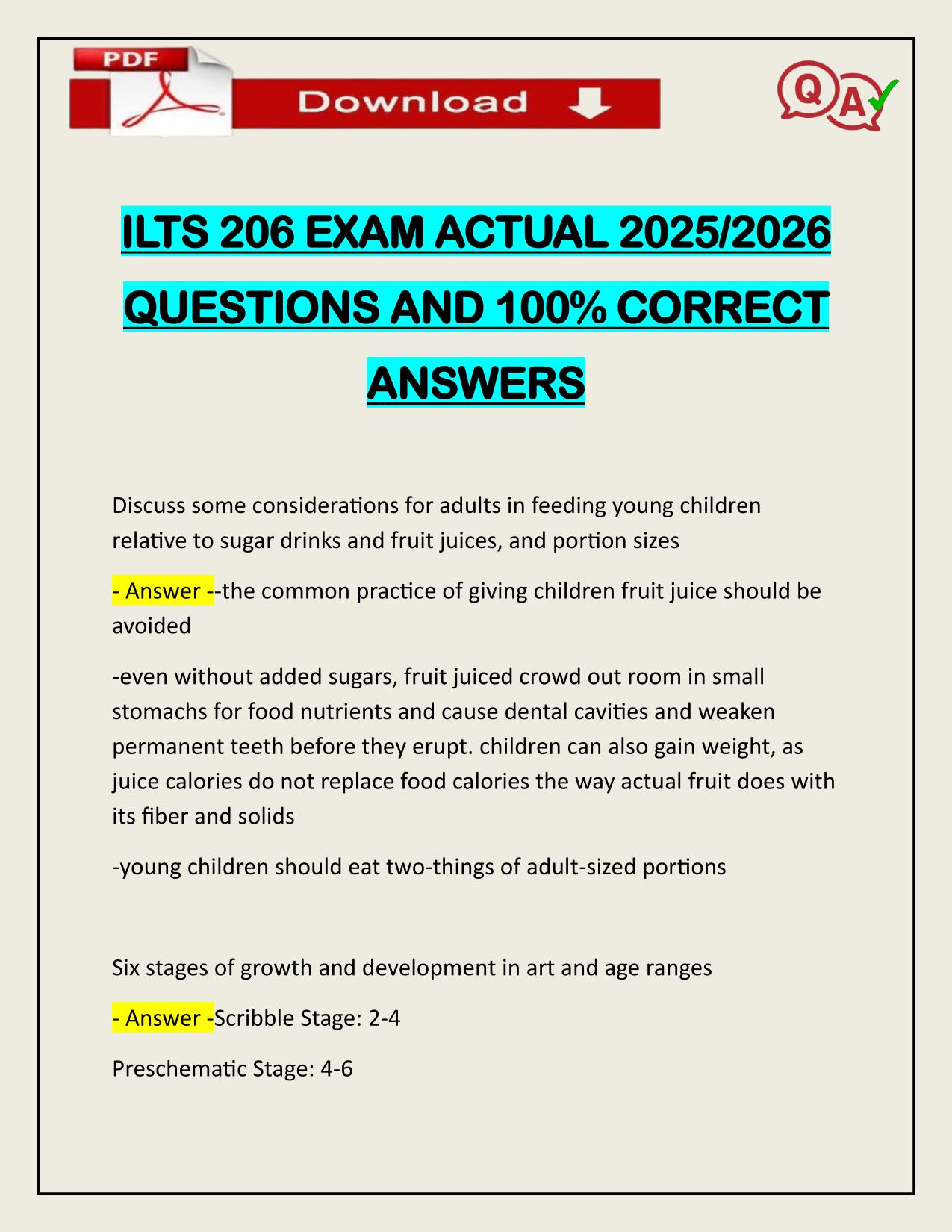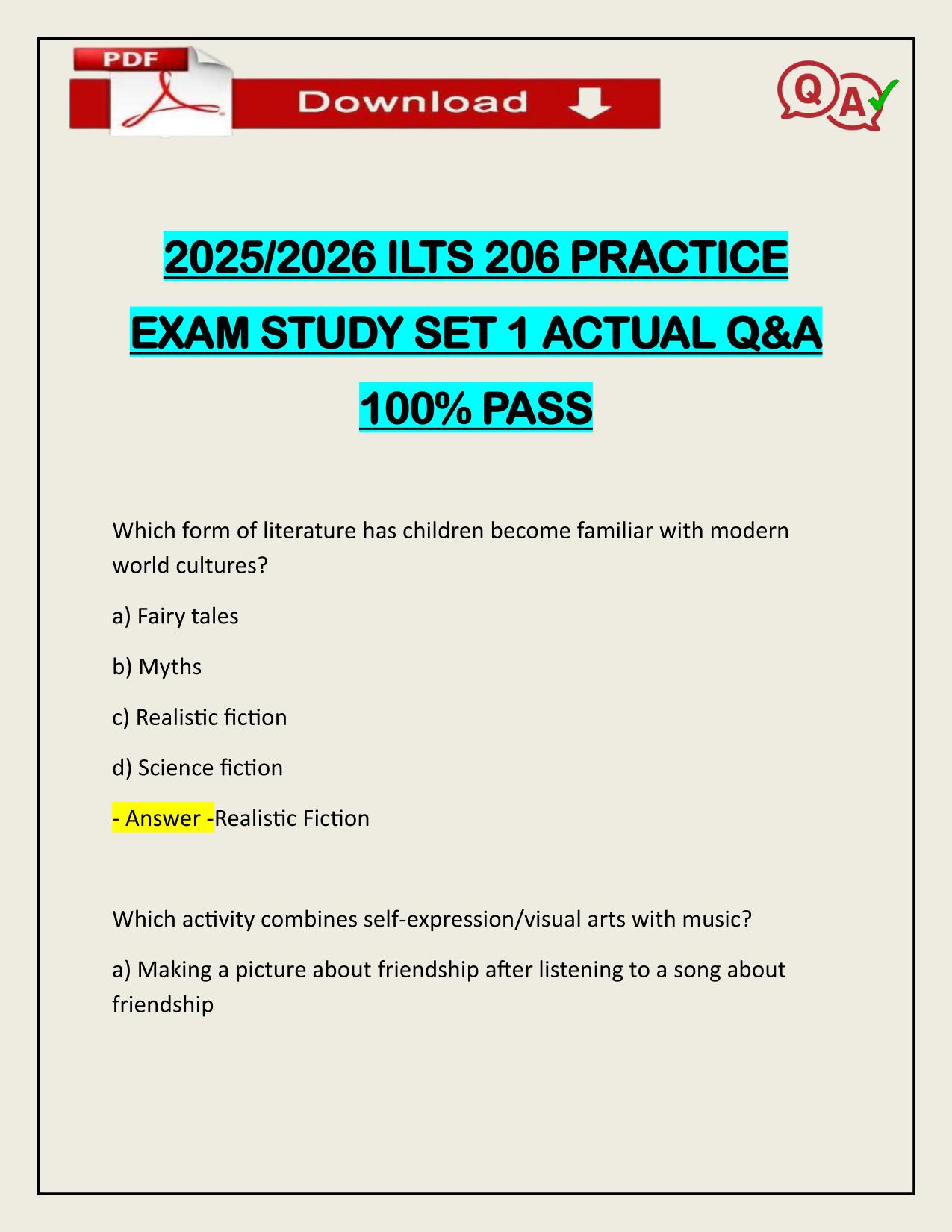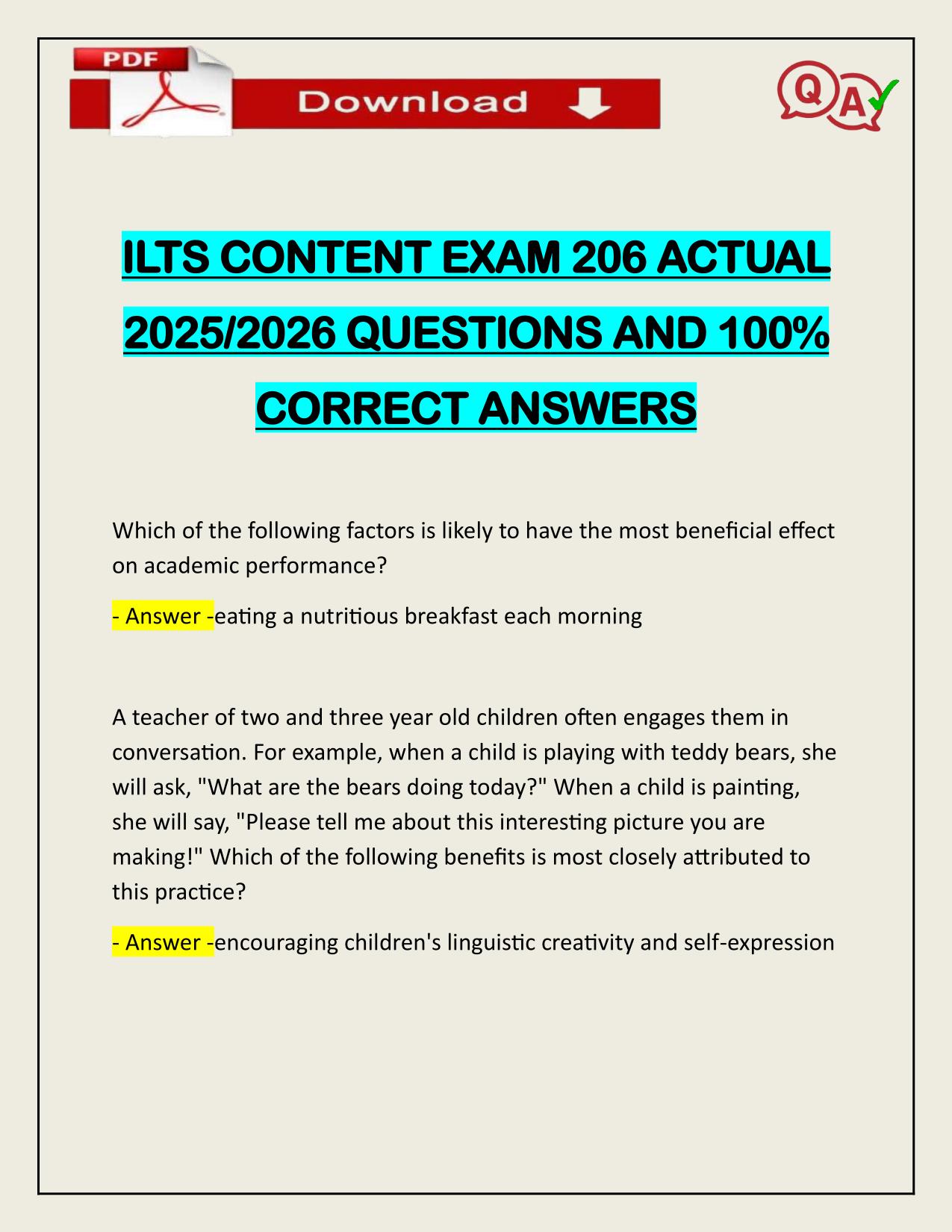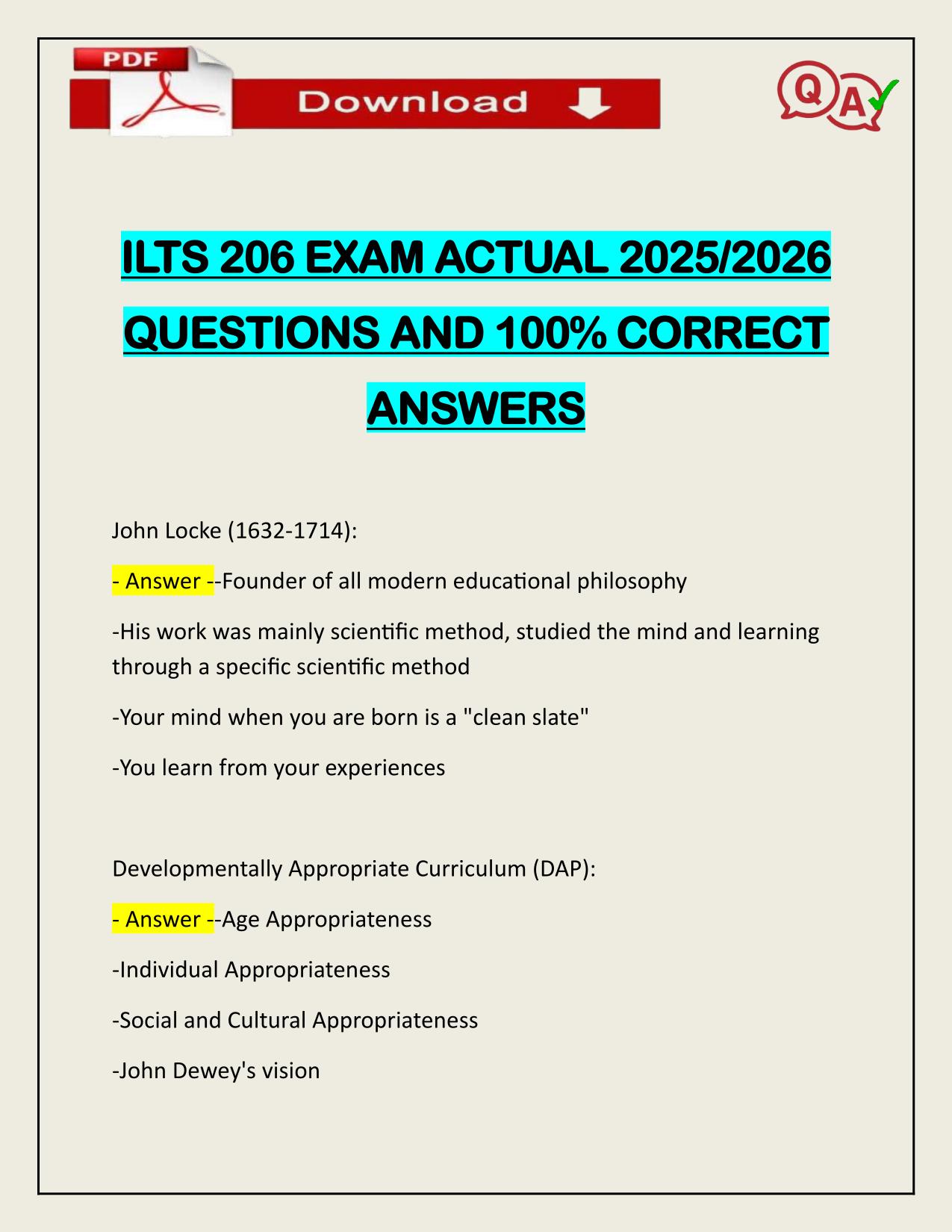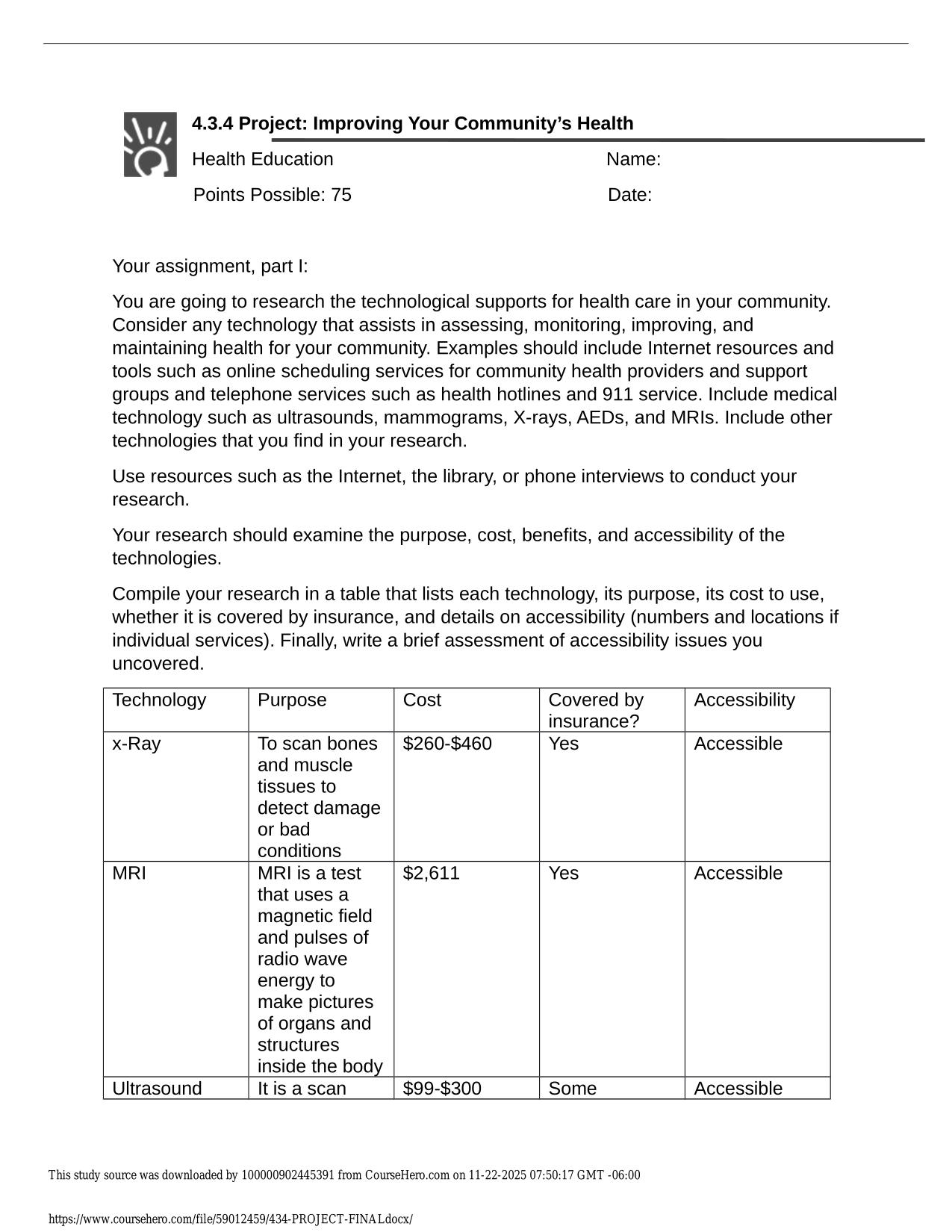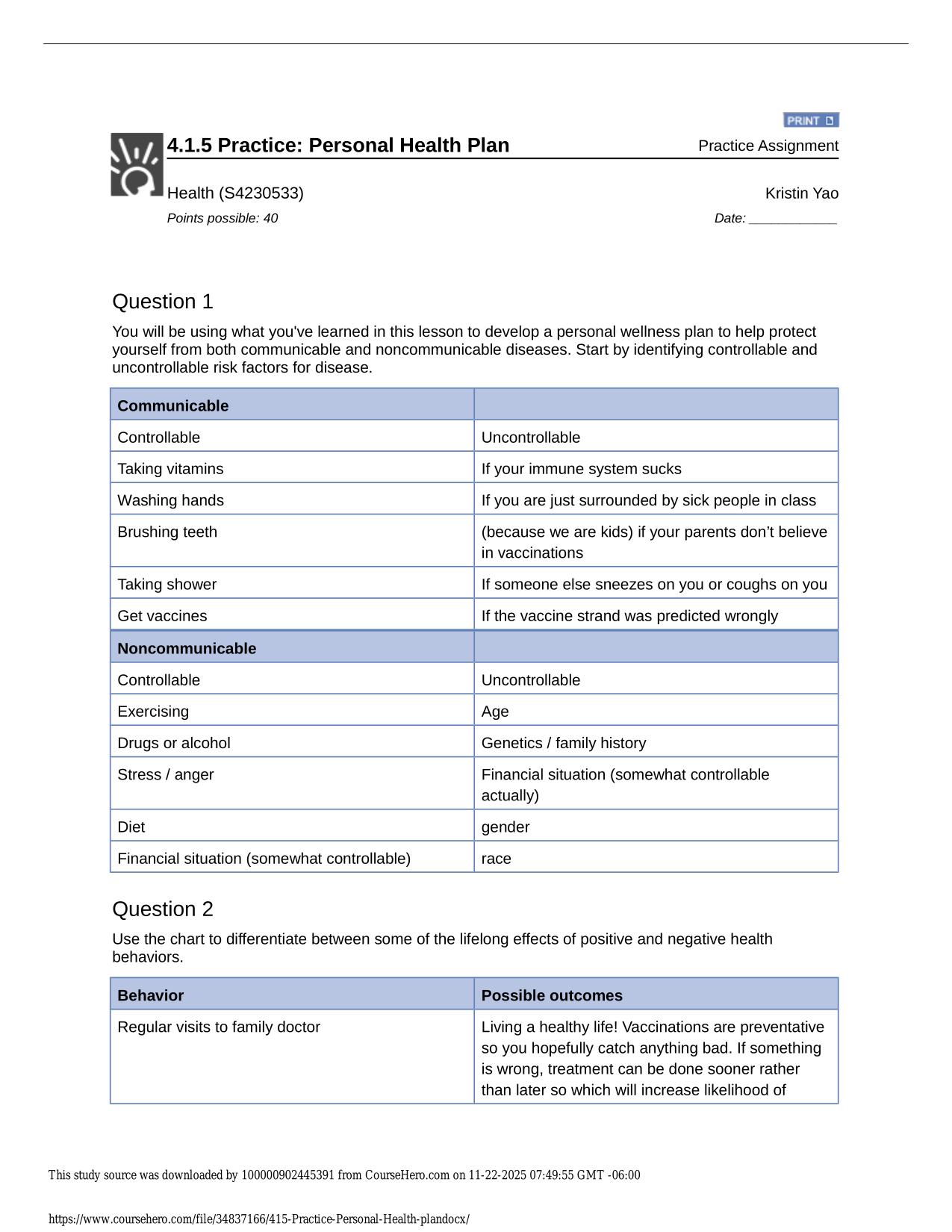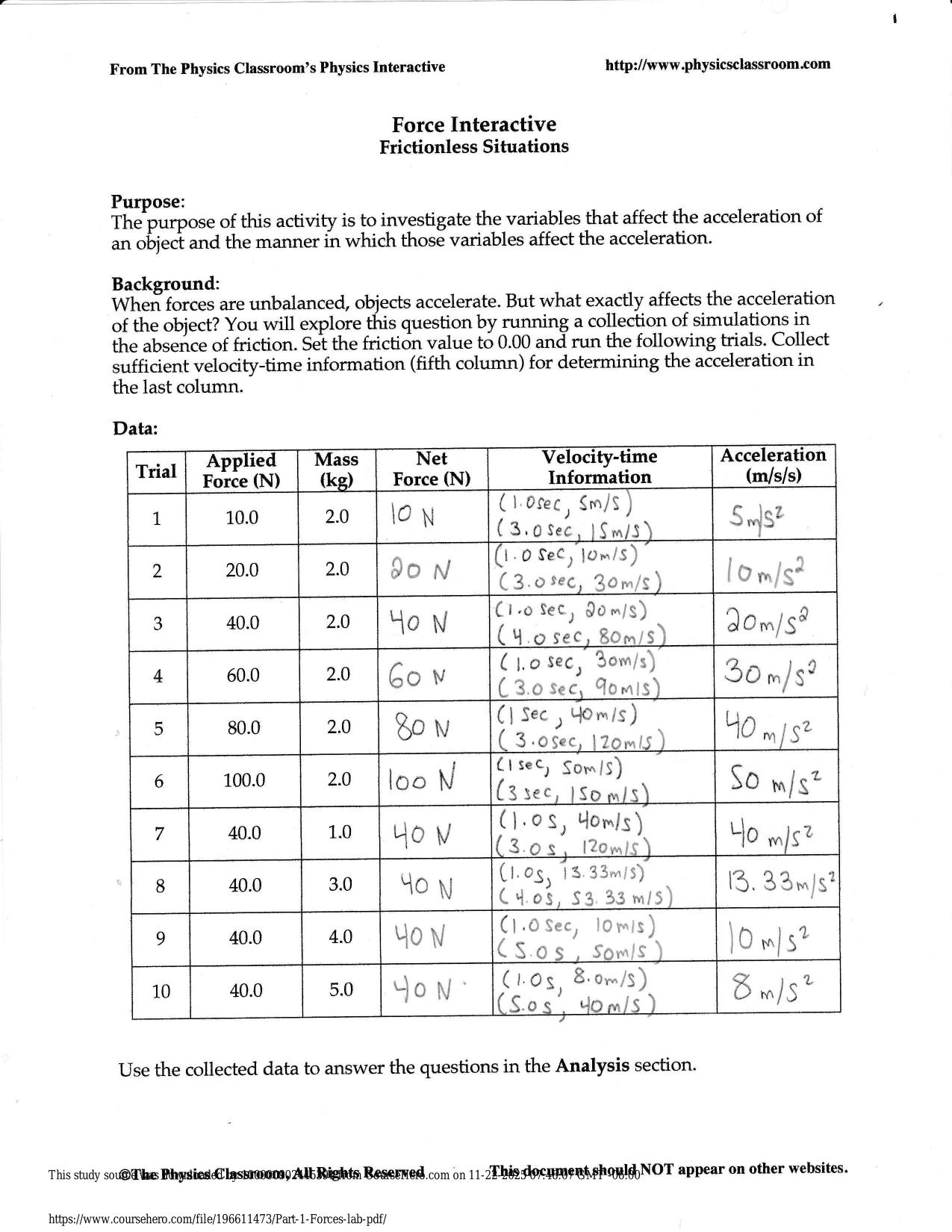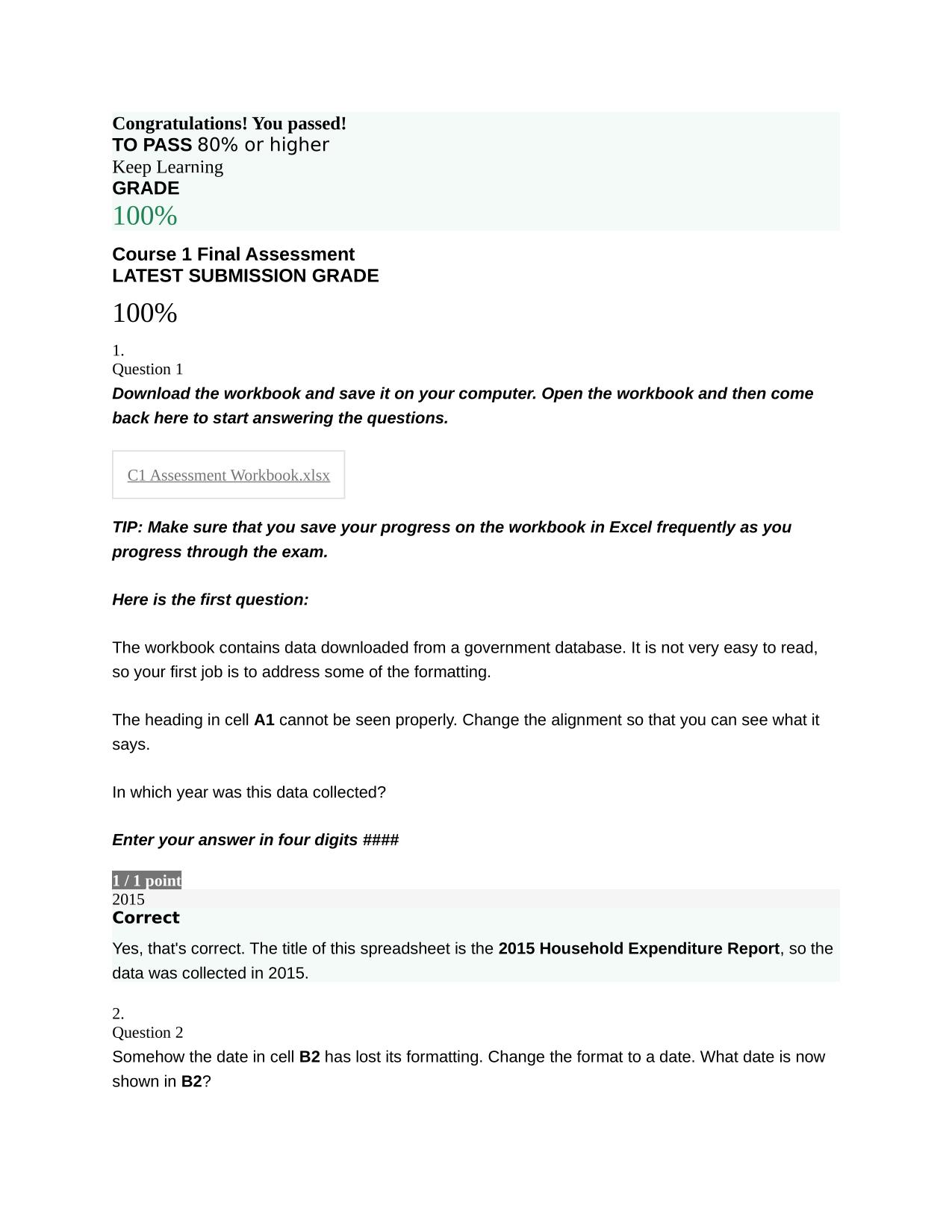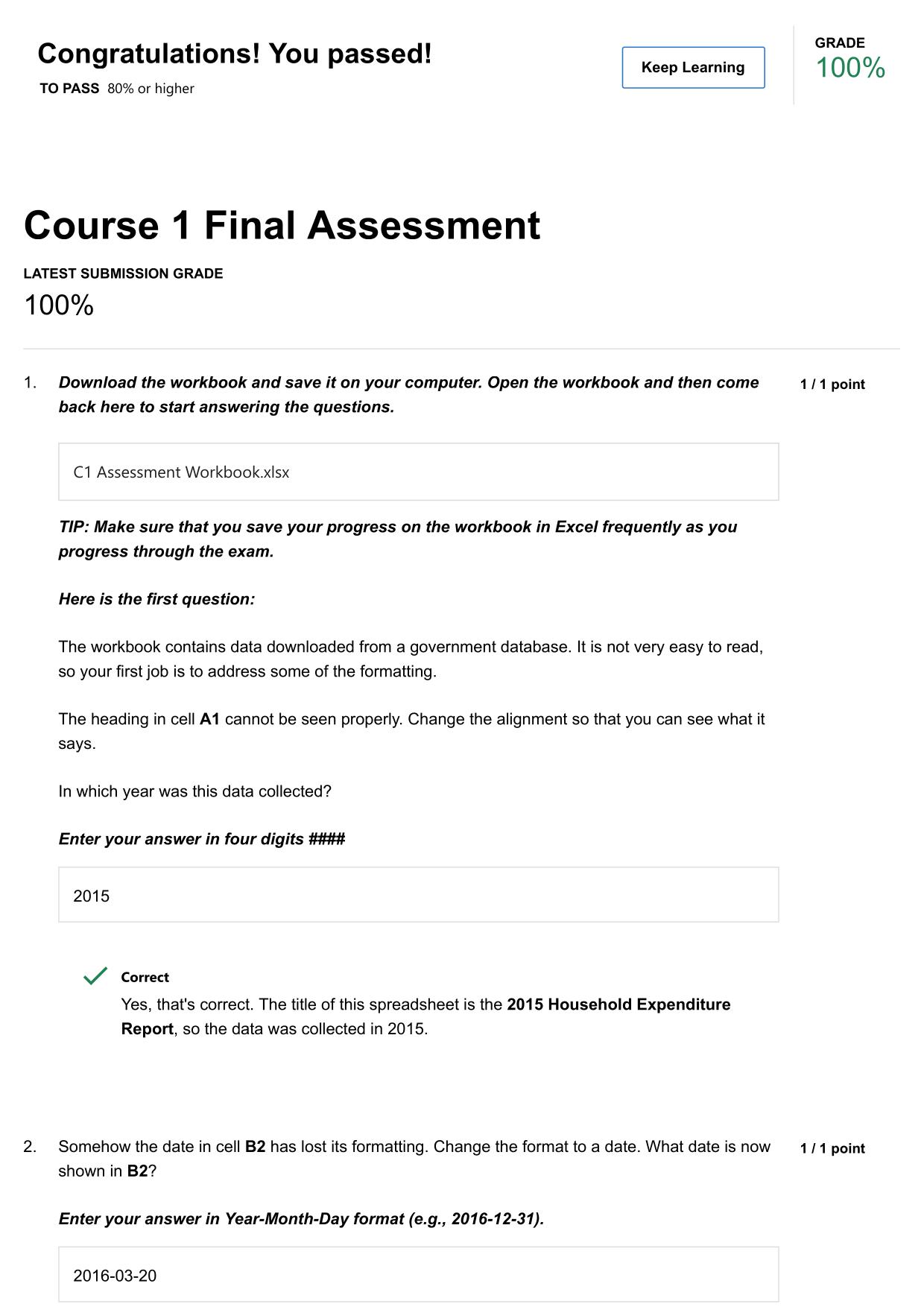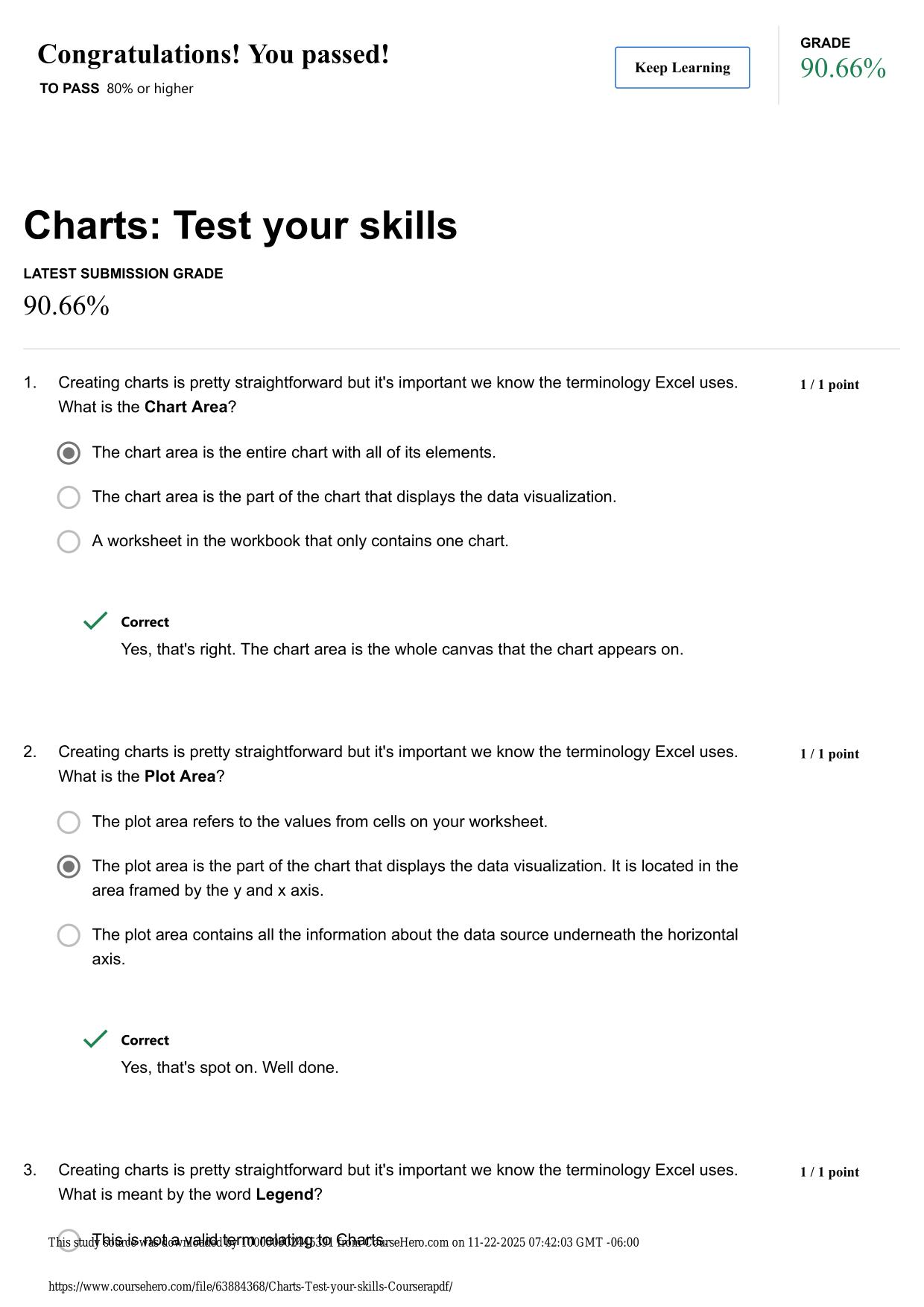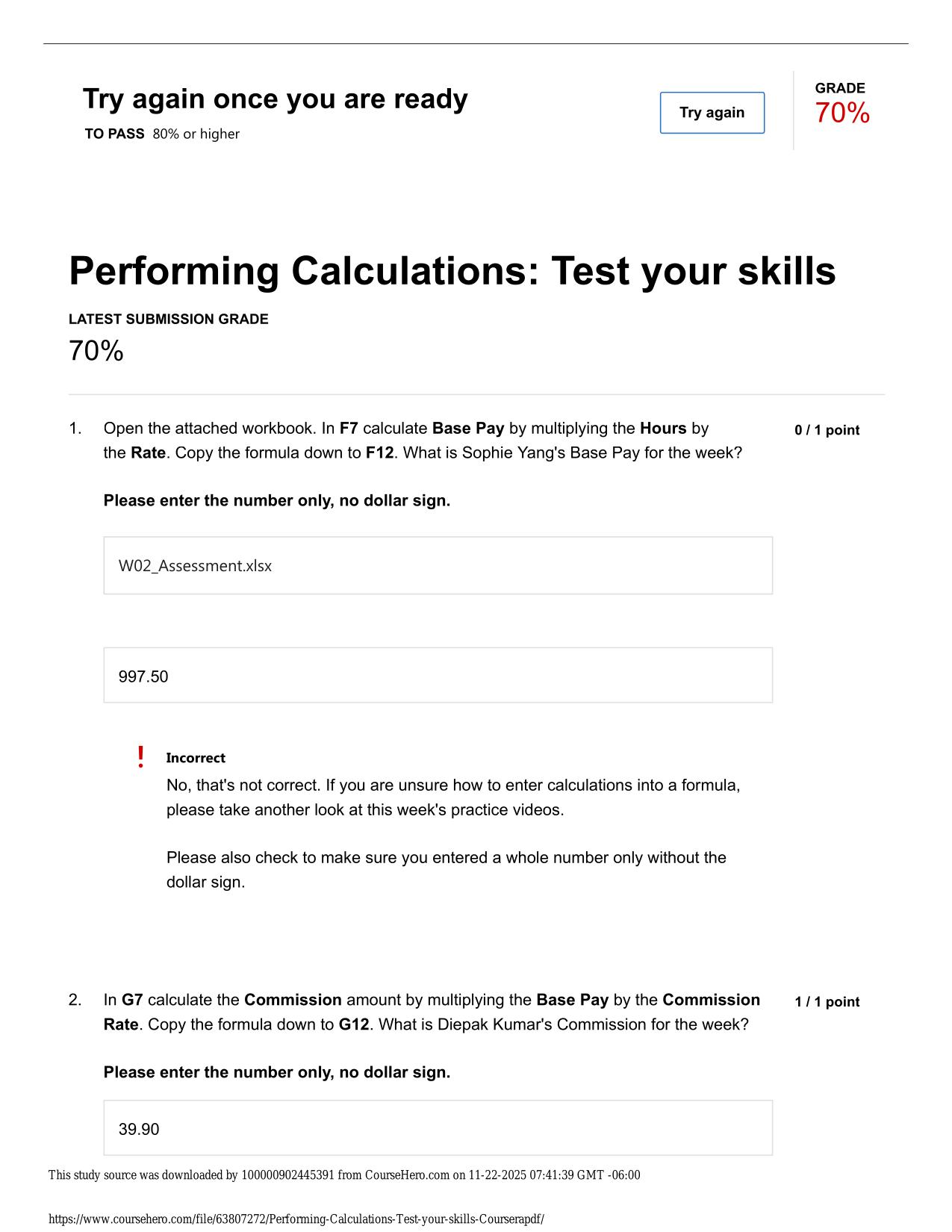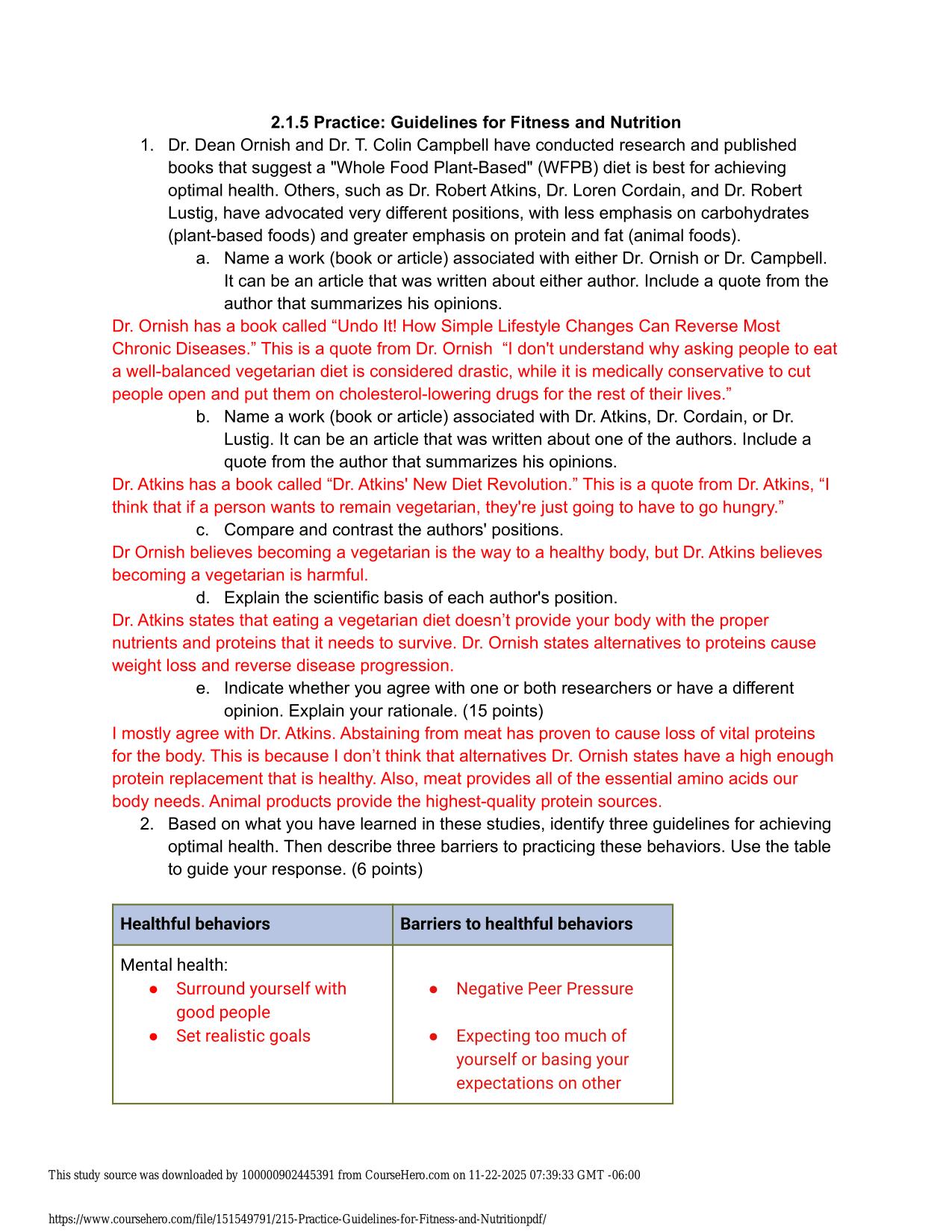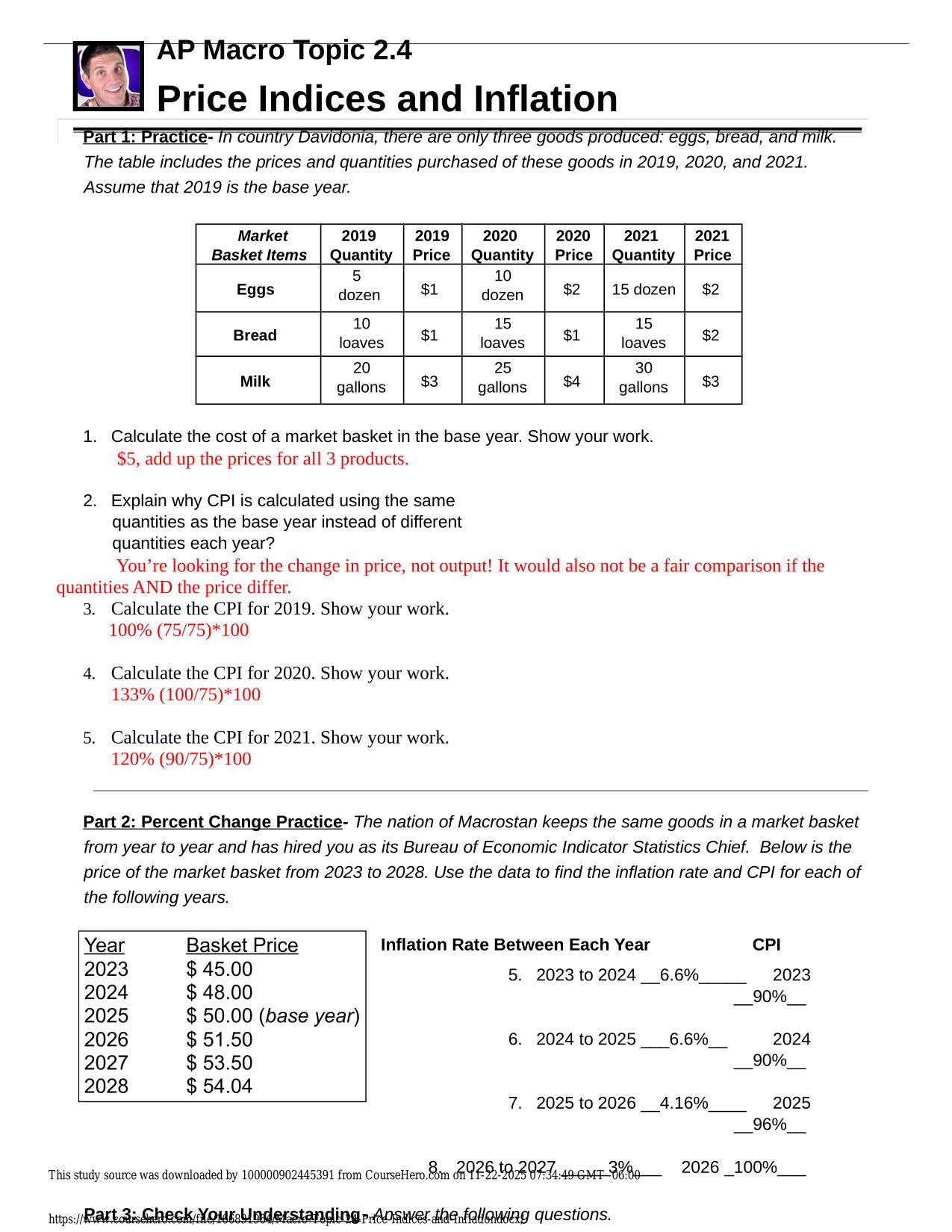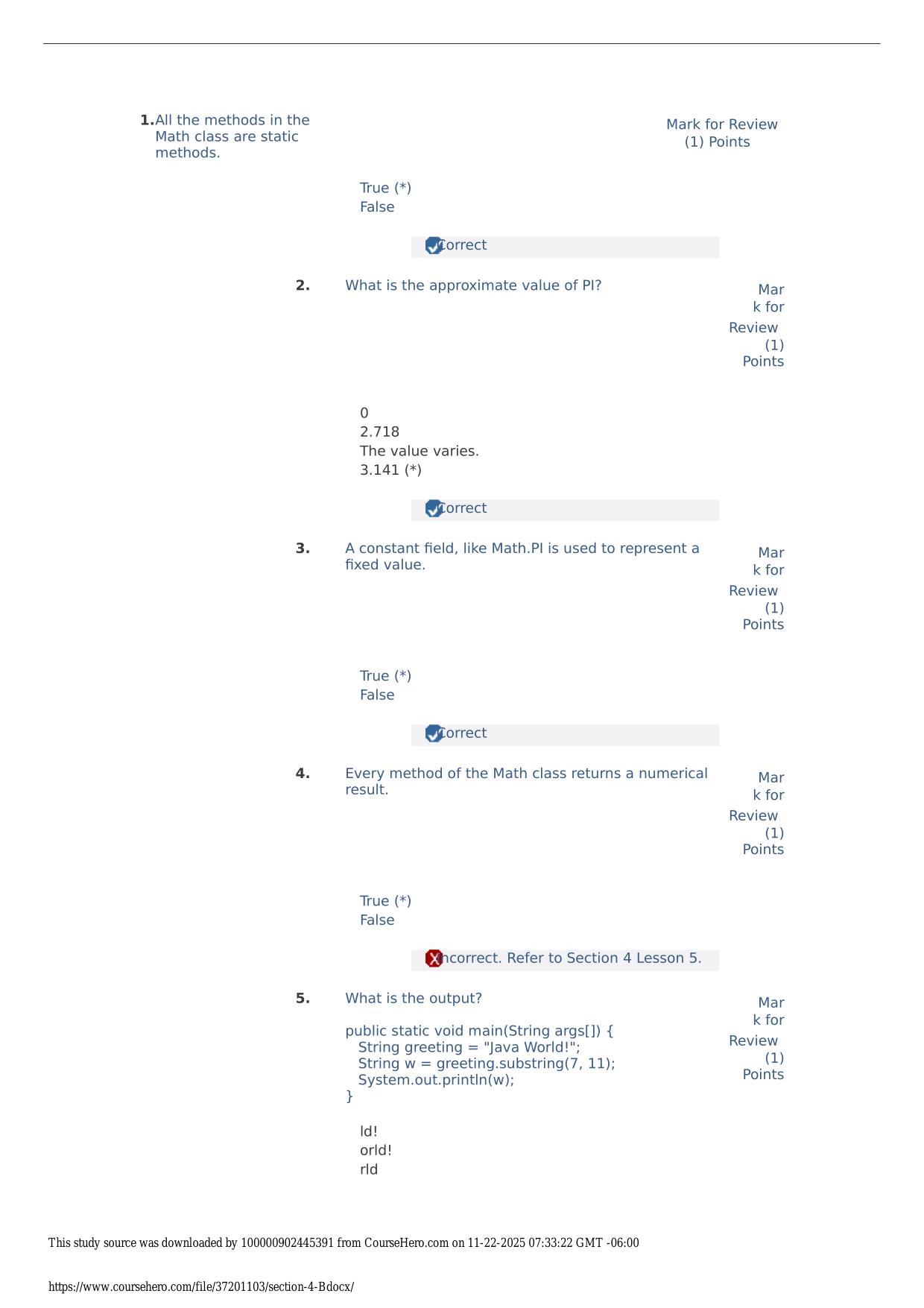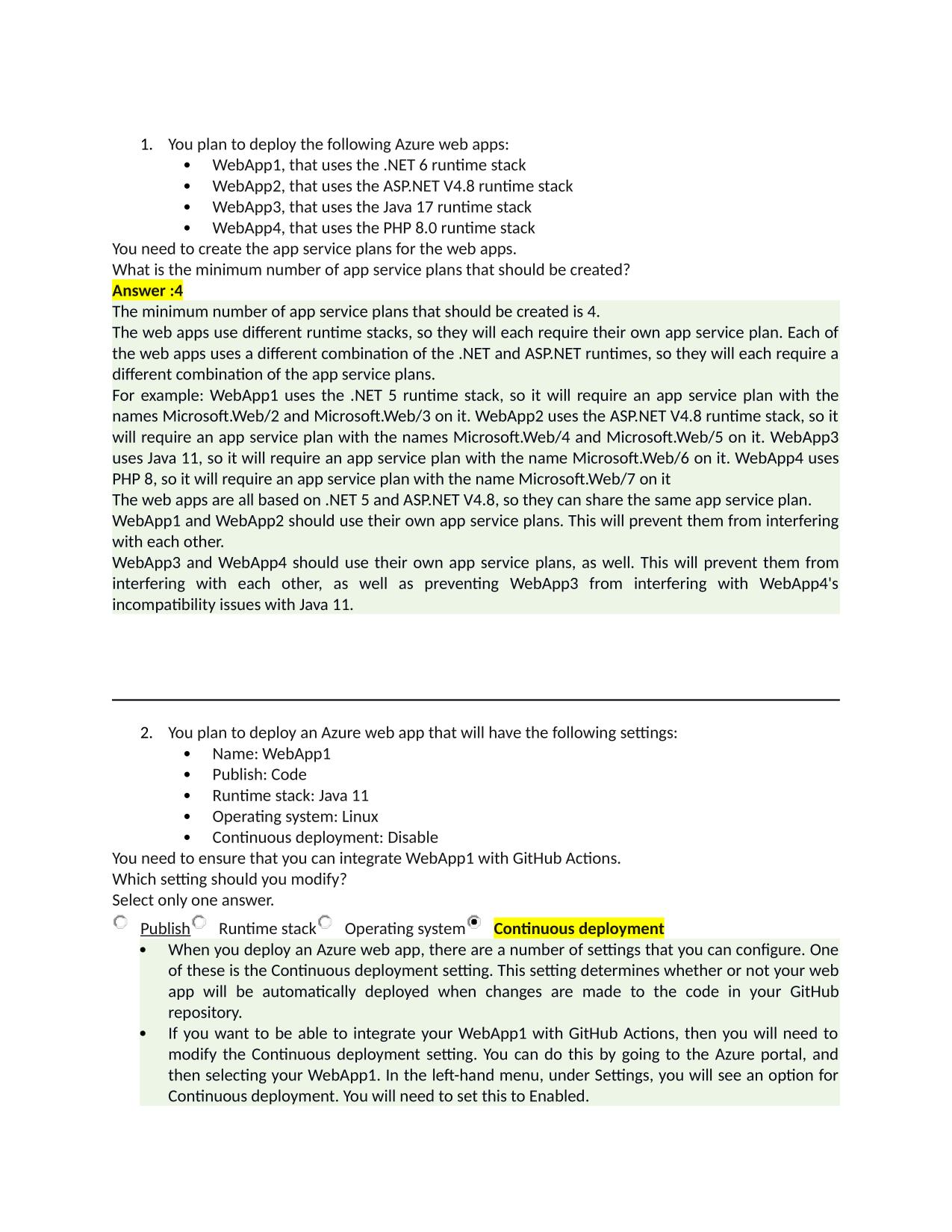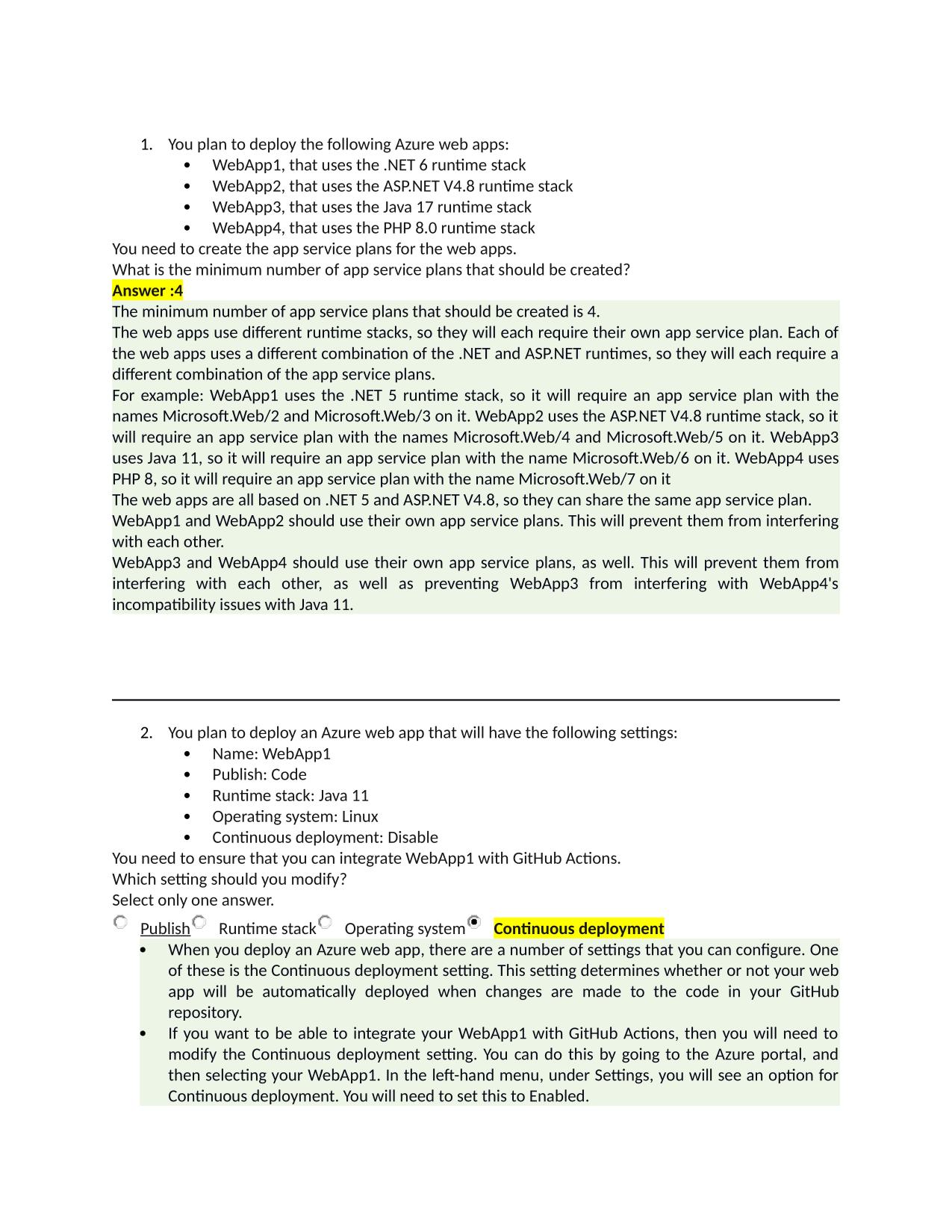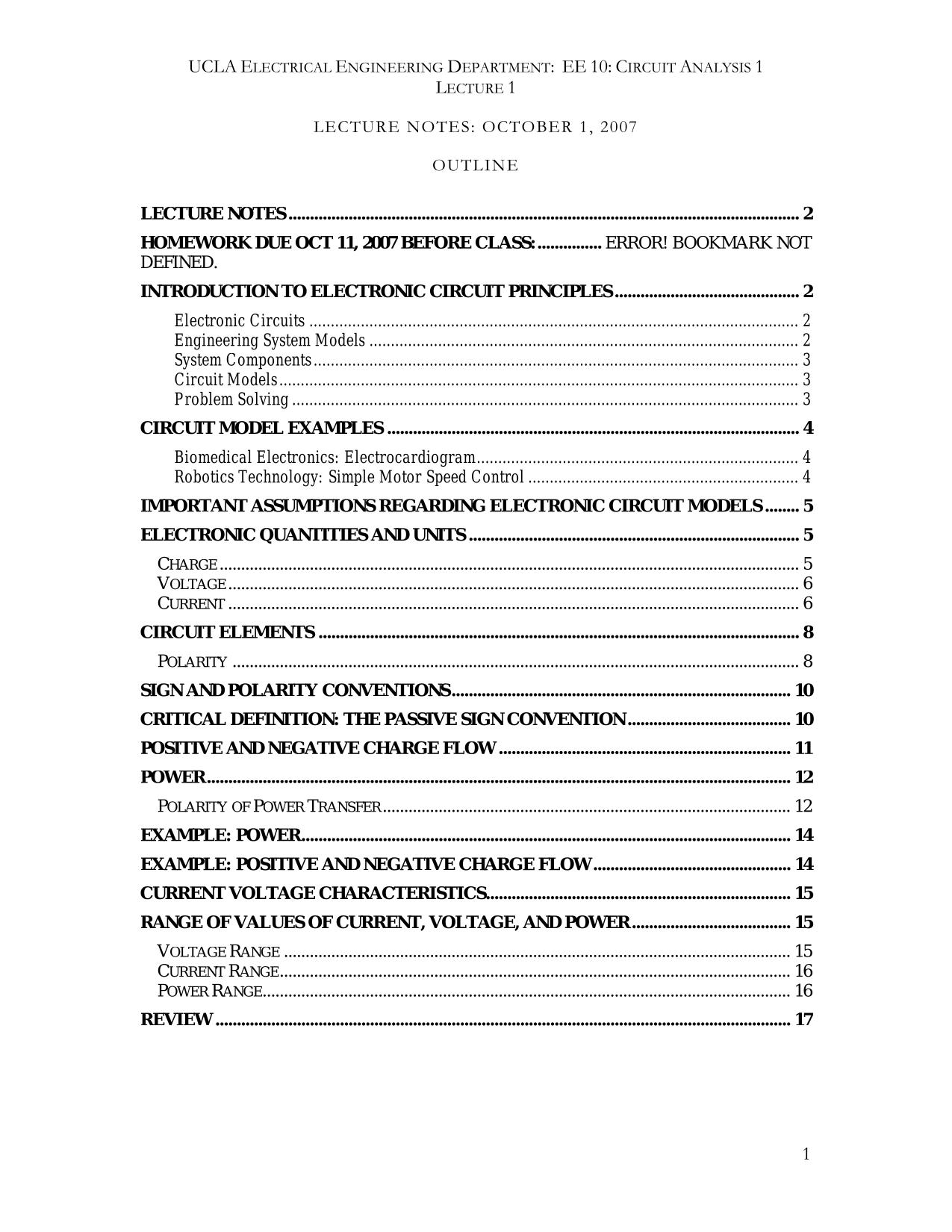2025/2026 ILTS EARLY CHILDHOOD EDUCATION (206) EXAM ACTUAL Q&A 100% PASS
Course:
ILTS 206
Institution:
ILTS 206
2025/2026 ILTS EARLY CHILDHOOD EDUCATION (206) EXAM ACTUAL Q&A 100% PASS Equilibrium: - Answer --Family's balance and consistency Sensorimotor Stage (Piaget): - Answer --Birth-2 years old, Infants learn through environmental input they receive throug...
After purchase, you get:
✅ Instant PDF Download
✅ Verified answer explanations
✅ Refund if not Satisfied
✅ Prepared for 2025/2026 test cycle
Overview
Solutions are phrased to help learners internalize important exam principles without unnecessary complexity. The clear, direct language makes key concepts easy to grasp and remember. There's no wading through academic jargon or convoluted explanations to find the vital points. The effective communication style respects your time while delivering maximum learning value. 2025/2026 ILTS EARLY CHILDHOOD EDUCATION (206) EXAM ACTUAL Q&A 100% PASS is systematic to help learners build self-assurance with realistic question formats and accurate solutions. Many students find that working through these materials makes the actual exam feel familiar rather than intimidating. The carefully crafted questions help identify areas where you need more practice before test day. You'll notice your anxiety decreasing as you become more comfortable with the testing format through repeated practice.
Who Is This For?
Great for candidates pursuing higher exam scores, aiming to boost accuracy, speed, and comprehension in ILTS 206. Many users have seen noticeable score improvements after consistent practice. The focused training helps develop both knowledge and test-taking skills.
Related Keywords
Detailed Study Description
Frequently Asked Questions
Document Information
| Uploaded on: | October 31, 2025 |
| Last updated: | November 17, 2025 |
| Number of pages: | 32 |
| Written in: | 2025/2026 |
| Type: | Exam (elaborations) |
| Contains: | Questions & Answers |
| Tags: | 2025/2026 ILTS EARLY CHILDHOOD EDUCATION (206) EXAM ACTUAL Q&A 100% PASS Equilibrium: - Answer --Family's balance and consistency Sensorimotor Stage (Piaget): - Answer --Birth-2 years old, Infants learn through environmental input they receive through their senses; motor actions they engage in; and through feedback they receive from their bodies and the environment about their actions Sensorimotor Stage (Piaget), First 3 substages: - Answer --From birth to 1 month old, infant learns to comprehend their environment through their inborn reflexes such as sucking or looking around |
Seller Information

AdelineJean
User Reviews (0)
Exam (Elaborations)
$10.00
Bundle Deal! Get all 5 docs for just $18.00
Add to Cart
100% satisfaction guarantee
Refund Upon dissatisfaction
Immediately available after purchase
Available in Both online and PDF
$10.00
| 0 sold
Discover More resources
Available in a Bundle
Inside The Document
2025/2026 ILTS EARLY CHILDHOOD EDUCATION (206) EXAM ACTUAL Q&A 100% PASS Equilibrium: - Answer --Family's balance and consistency Sensorimotor Stage (Piaget): - Answer --Birth-2 years old, Infants learn through environmental input they receive through their senses; motor actions they engage in; and through feedback they receive from their bodies and the environment about their actions Sensorimotor Stage (Piaget), First 3 substages: - Answer --From birth to 1 month old, infant learns to comprehend their environment through their inborn reflexes such as sucking or looking around. -From 1-4 months old, babies begin to coordinate their physical sensations with new schemas they form to represent elements of reality. -From 4-8 months (Secondary Circular Reactions), children repeat rewarding actions but now they are focused on things in the environment that they can affect Last 3 substages of Sensorimotor stage: - Answer --From 8-12 month (Coordination of Reactions): having begun repeating actions purposefully to achieve environmental effects during the previous substage and further explore their surroundings. Frequently imitate others -(Tertiary Circular Reactions), 12-18 months, children begin to experiment through rial and error. -(Early Representational Thought) 18-24 months, children begin representing objects and events with symbols Object Permanence: - Answer -the awareness that things continue to exist even when not perceived (typically 8-9 months) Need assistance on Online classes, Exams & Assignments? Reach out for instant help!! Full Course Assistance, Plagiarism-free Essay Writing, Research Paper, Dissertation, Discussion Posts, etc…. Confidential & Secure services. Tutors are available for all subjects! Email now at: tutorjean01@gmail.com Schema and Schema development: - Answer --A schema does not represent an individual object, but a category or class of things. Conservation: - Answer --The cognitive ability to understand that objects or substances retain their properties of numbers or amounts even when their appearance, shape or configuration changes. ex: liquid volume experiment Preoperational Stage: - Answer --(Piaget), 2-6 years children cannot yet perform mental operations nor manipulate information mentally. Concrete Operational Stage: - Answer --(Piaget) 6-7 years, children begin to think logically using cause and effect to things they can see, feel or manipulate physically. However, they still struggle to think abstractly. Preoperational Stage Continued: - Answer -- (Piaget), children between 2-6 have begun using objects to represent other things through exploration of pretend/make-beleive play. -Piaget termed pre operational children "egocentric" in that they literally cannot adopt another point of view even concretely Animism: - Answer --Develops in pre operational stage -Assigning human beliefs, qualities, feelings and actions to inanimate objects -Related to egocentrism in regard to everything revolving around oneself Stages of Growth and Development in Art: - Answer --Six stages -Scribble Stage (age 2-4): uncontrolled scribble, controlled scribble, naming scribble to indicate representation -Preschematic Stage (4-6 years old): Children begin to develop a visual schema -Schematic Stage (7-9 years old): Drawings more reflect actualy physical Need assistance on Online classes, Exams & Assignments? Reach out for instant help!! Full Course Assistance, Plagiarism-free Essay Writing, Research Paper, Dissertation, Discussion Posts, etc…. Confidential & Secure services. Tutors are available for all subjects! Email now at: tutorjean01@gmail.com
CourseHero & Studypool Unlocks
Get Unlocked CourseHero and Studypool documents files instantly to your email, simply by pasting your link and clicking "Unlock Now". Learn more on how to unlock here.
